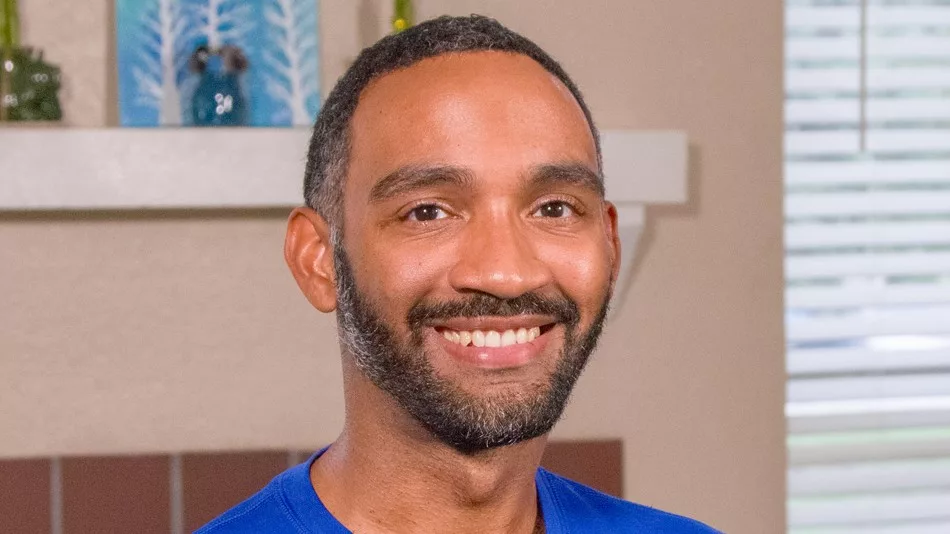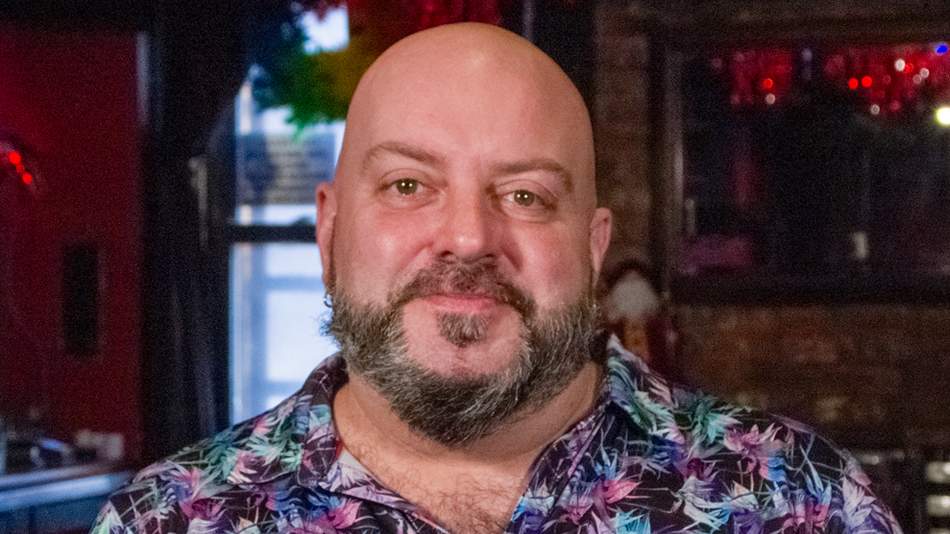My name is John Becker. I’m from Green Bay, Wisconsin.
I knew I was gay long before I knew what word to attach to it. I knew that the feelings that I was feeling were directed towards other boys and not to other girls. I didn’t know that that made me gay. I actually found out about – I found that word out on the playground, where the kids would call me that.
Throughout the whole struggle, my prayer, my thought was just, I was, I would ask god to take it away. I was hurting myself. I was inflicting pain on myself. I was praying rosaries. I was doing everything that, you know, that the Catholic Church and all these saints’ lives and all these prayer traditions said to do and nothing was working. It was finally one night when I tried to end my life, that was what sort of snapped me out of it, to realize that, yeah, I needed to somehow make peace with it.
Over the next 8, 10 years or so, my journey continued. I came out to my family. That was a little bit bumpy at first, but ultimately they were very supportive. I started to date guys. I met one whom I fell in love with and we got married. It was a period of a lot of growth for me in terms of embracing my sexual orientation.
In 2011, we moved out to Vermont so I could take a job with an organization that fights back against anti-LGBTQ religious extremism. The “pray-away-the-gay” myth, conversion therapy and things like that. It was also the run-up to the 2012 presidential election. It was primary season. After one of the debates, the winner of that debate was Michele Bachmann. She is a very far-right conservative congressman from Minnesota, or was at the time. A lot of attention started to come to the quote-unquote Christian counseling clinic that she and her husband ran in Minnesota.
That clinic, they’re long been rumors swirling around that it offered conversion therapy. They’d always denied it and nobody had ever been able to independently verify whether or not the rumors were true. So we decided that we were going to go in and and try to verify these rumors ourselves, to see whether or not they were true. So here’s little old 26 year old me in a home office in in Burlington, Vermont and I pick up the phone and I called this Minnesota clinic and I tell them that I am, you know, I’m a young man who is struggling because I have feelings of homosexuality, I’m attracted to other men.
“Can you help me get rid of these things so I can – my life can be in accordance with with my faith tradition?”
The reason we did that was because we wanted to give them an opportunity to respond ethically, and any ethical mental health professional hearing somebody like me say that to them and ask for that kind of help, quote-unquote, would say, “You’re asking for something that actually can’t be done and is actually going to be harmful to you.” They didn’t say that. They didn’t respond ethically.
They said, “Oh sure, we can do that for you. We’ll get you set up with a therapist.” I booked my flight out to Minnesota and I got on a plane. When I stepped off the plane and got ready for this experience, I didn’t just step into a new place, I sort of stepped back into a lot of painful memories in my own life.
I pulled up into the parking lot for that first appointment and I realized that my transformation couldn’t just be in my mind – it had to be a physical one. I took my wedding ring off and placed it inside the flap of the messenger bag I had with me. I placed it right next to one of the cameras that I was going to be using to record the sessions. I had three recording devices on me – one was that pinhole camera in my bag where I put the ring as sort of a reminder of myself and of why I was doing this. I also had a spy camera hidden in a wristwatch that I was wearing. The third recording device that I had was a sound recorder disguised as a thumb drive keychain.
I sat down with this therapist. It was an extended fishing expedition all through my life to try to find some kind of extrinsic factor on which to pin my homosexuality, my affliction. They gave me a treatment plan. They said it would take about four to six months and that, at the least, I could expect to get my homosexuality down to “manageable levels”, was the word that they used. But at the most, he said that many people are cured completely.
It was over a couple of weeks, five sessions in total, and during those, I was advised everything from getting myself a gay accountability buddy to call any time that I felt the gay itch. I was told that every time I saw a woman that was beautiful, even if I wasn’t sexually attracted to her, to recondition my mind and to remind myself that her breasts were for me to be attracted to – I was designed to be attracted to those things. I was given prayers. I was given referrals to churches and to pray-the-gay-away support groups.
After those five sessions was when we realized that we had enough video evidence to show that conclusively that’s what they were doing. So that was when I disappeared and hopped the plane back to Vermont.
We worked with a producer for ABC News and we worked with their team and put it out and it ended up being – it was the lead story on ABC World News Tonight.
This exposé really did help to re-center the conversion therapy issue in the national conversation and awaken many people to the dangers of it. In the years afterward, we saw multiple states passing bans on the practice for minors. We saw President Obama come out against conversion therapy. The Southern Poverty Law Center filed a groundbreaking lawsuit in New Jersey and won, suing one of these organizations on the basis of consumer fraud.
On a personal level, it felt like a victory, too, because after all of that, after all of that time I spent back dredging up all of those memories and inhabiting that space, that scared, frightened, self-loathing, desperate 14,15-year old, who hated himself and who was cutting himself and who didn’t know where to turn and who would cry at night and pray to God to make him different. It felt like a way to strike back, it felt like a way to strike a blow against the religion-based bigotry that had dominated so much of my life. And that was very satisfying.
They are still LGBTQ youth all across this country who live in homes where they hear things like this, where they hear these kind of anti-LGBTQ teachings, where they hear parents or relatives or preachers tell them that they’re sick and that they’re twisted and that they’re sinful and that they’re evil and that they’re going to go to hell for who they are. They need to know that that’s a lie. They need to know that they’re fine just as who they are.








Share